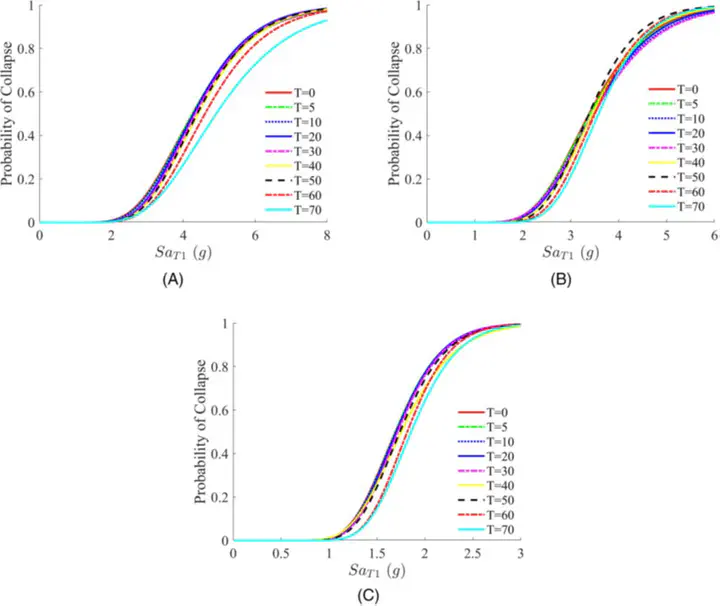 Overview
Overview
Abstract
This paper presents a computationally efficient collapse fragility assessment approach that leverages the collaborative filtering (CF) technique. The proposed method randomly selects and runs a subset of the nonlinear response history analyses (NRHAs) required for the incremental dynamic analysis. The structural performance in the omitted cases is then estimated using CF, which requires significantly less time and effort than the nonlinear structural analysis. The NRHA-based and CF-generated building performances are then assembled to determine the empirical probability of collapse at each intensity, which is later fitted with a lognormal distribution to obtain the median collapse capacity and associated dispersion. The proposed approach is applied to three steel moment frames, demonstrating that it can reduce the required NRHAs by 50% while providing a reliable collapse fragility estimate for the selected ground motion sets (FEMA P695 44 far-field records and a site-specific record-set). The results from sensitivity analyses reveal that the proposed method is reasonably robust unless the input parameters are assigned extreme values.